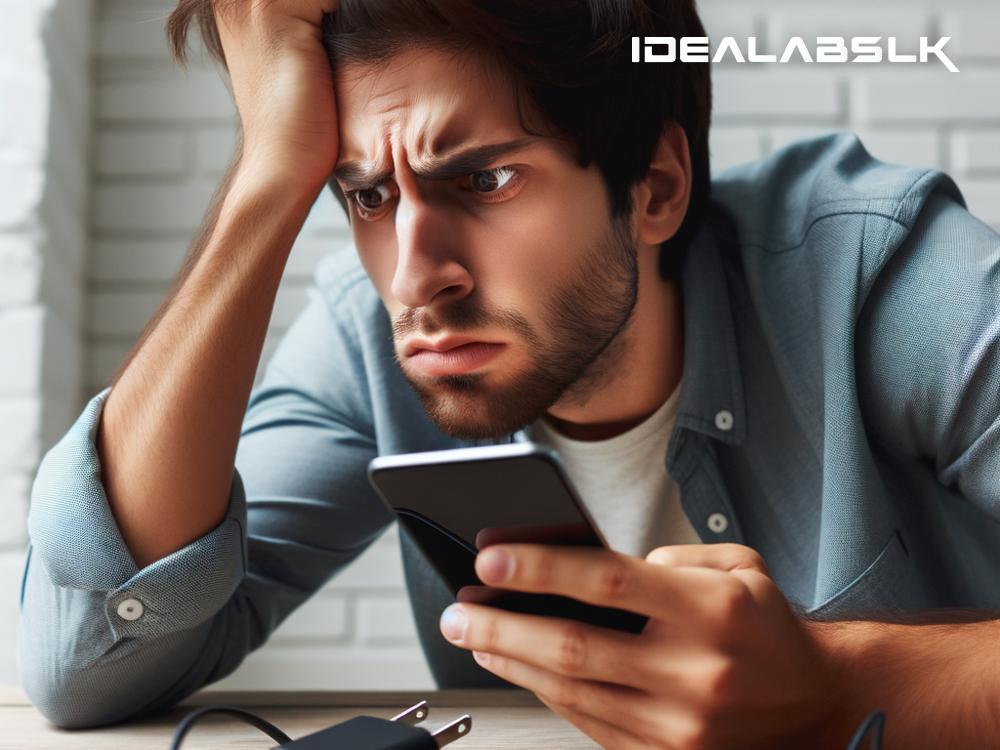Why Your Smartphone Isn’t Charging Properly: A Simple Guide
We've all been there: you plug your smartphone into its charger, expecting the battery to start juicing up, only to find that hours later, it's barely gained any power. It's a common frustration, and it often happens at the most inconvenient times. But what really causes this issue, and how can you fix it? Here’s a straightforward explanation to help you understand why your smartphone isn’t charging properly and what you can do about it.
1. Dirty or Damaged Charging Ports
One of the simplest reasons your phone might not be charging well is that the charging port is dirty or damaged. Dust, lint, and other debris can accumulate in the port, preventing the charger from making a good connection. In some cases, the port can also become bent or damaged, especially if you have a habit of plugging in the charger forcefully or at an angle.
Solution: First, inspect the port using a flashlight. If you see any dirt or lint, gently remove it with a toothpick or a small, soft brush. Be very careful not to damage any of the port's components. If the port looks damaged, it’s best to visit a professional repair shop.
2. Faulty Charging Cable or Adapter
Another common culprit is a faulty charging cable or adapter. Over time, these can wear out, especially if they are frequently coiled, twisted, or bent. A damaged cable might not be able to deliver enough power to charge your phone properly.
Solution: Try using a different charging cable and adapter to see if your phone charges better. It’s always a good idea to use original equipment manufacturer (OEM) accessories or those from reputable brands, as lower-quality accessories might not meet the necessary power requirements.
3. Software Glitches
Sometimes, the issue isn’t with the hardware but with the phone’s software. Glitches or errors can occur, especially after an update, preventing the phone from charging correctly.
Solution: Restarting your smartphone can often fix these temporary glitches. If that doesn't work, try updating your phone's operating system or performing a factory reset (make sure to back up your data first).
4. The Battery Is at Fault
As smartphones age, their batteries degrade. A battery’s ability to hold a charge diminishes over time, especially if it has been through hundreds of charging cycles. If your phone is older, its battery might be the reason it’s not charging well.
Solution: Battery replacement can give your phone a new lease on life. This is something best handled by professionals, especially for phones with non-removable batteries.
5. Power Source Issues
Sometimes, the problem isn’t with your phone or accessories but with the power source. Plugging into a computer’s USB port, for example, usually provides less power than a wall outlet, resulting in slower charging. Faulty outlets or power strips can also be to blame.
Solution: Try charging from a different power source or using a wall outlet if you’re not already doing so. Ensure the outlet is functioning properly by testing it with another device.
6. Background Apps Consuming Power
A surprising reason for slow charging is that some apps running in the background are consuming power almost as fast as the battery can charge. High-intensity tasks like GPS navigation or gaming can especially drain the battery quickly.
Solution: Close any unnecessary apps while charging or put your phone into Airplane mode to speed up the process.
Tips to Maintain Good Charging Health
- Use Quality Accessories: Always use chargers and cables from reputable brands.
- Keep It Cool: Avoid charging your phone in hot environments, as heat can damage the battery.
- Unplug Once Charged: Don’t leave your phone plugged in for long periods after it’s fully charged.
- Regular Cleaning: Gently clean your phone’s charging port periodically to remove dust and lint.
Understanding the common reasons behind poor charging can save you a lot of frustration. By following the solutions and tips provided, you can ensure your smartphone charges efficiently and maintains its battery health over time. Remember, if you're ever unsure about a problem or how to fix it, it's best to consult a professional to avoid damaging your device further.

